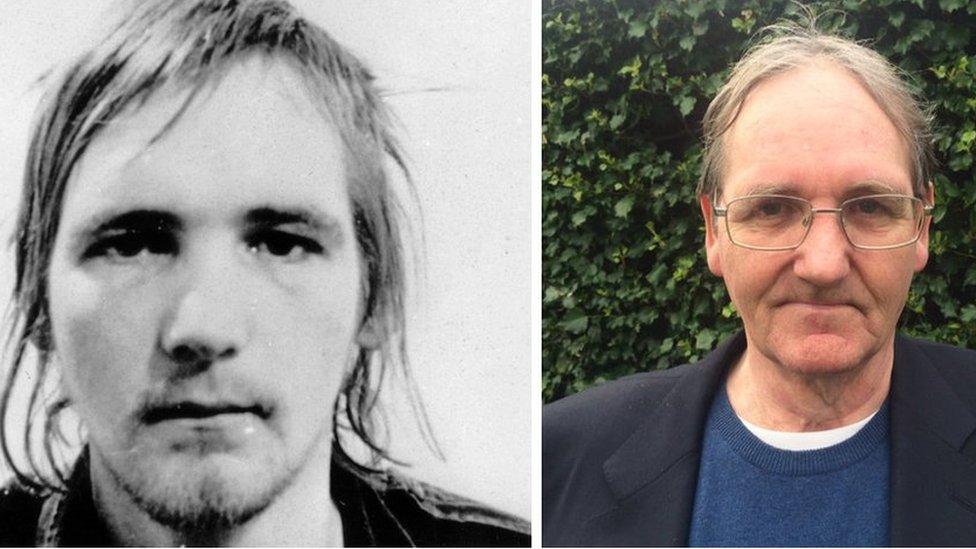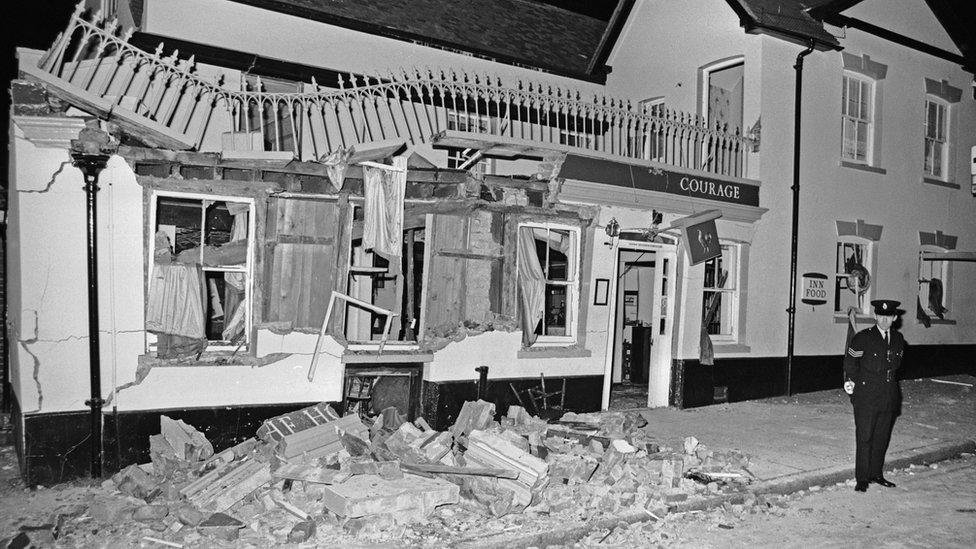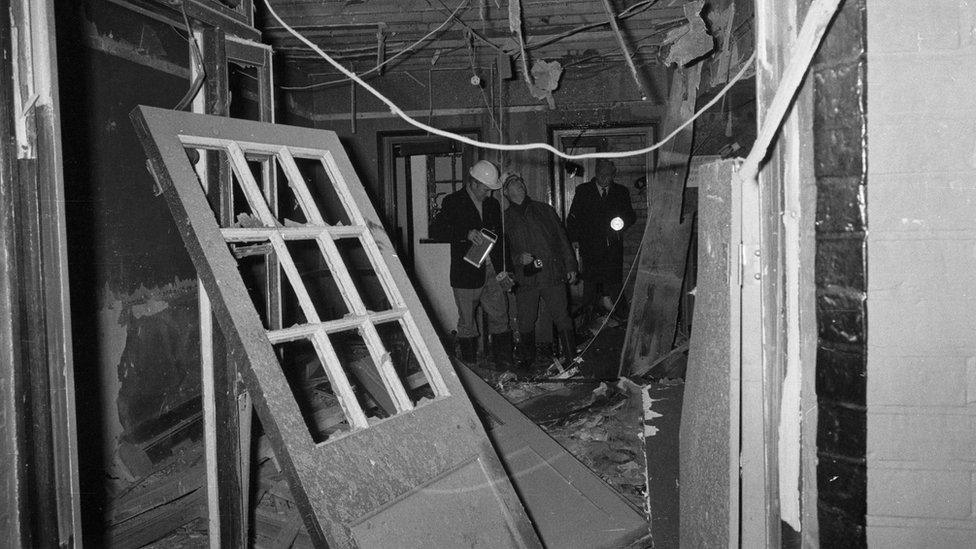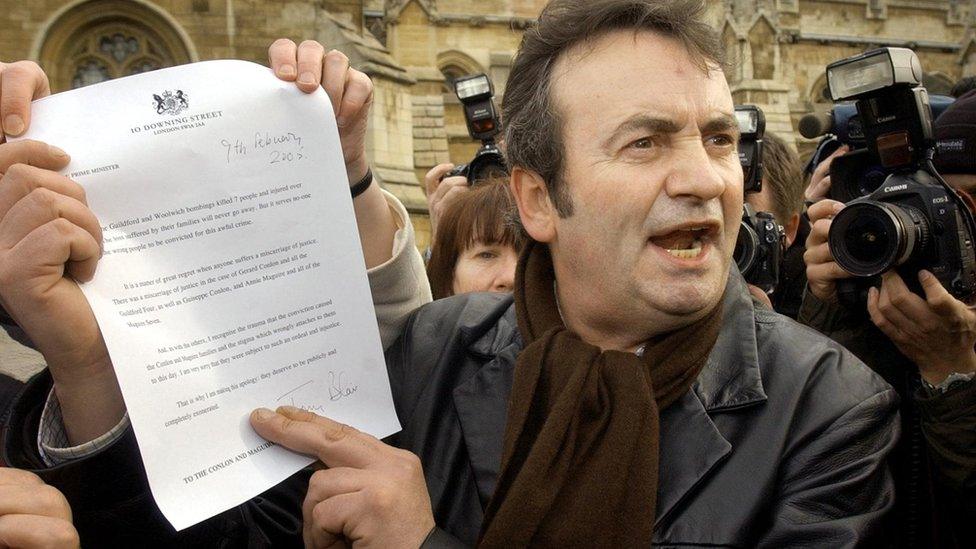Paddy Armstrong's offer to help pub bomb inquest rejected
- Published

Paddy Armstrong said he wanted the truth for himself and the victims' families
Falsely-accused Guildford Four member Paddy Armstrong has been refused an active role in the resumed pub bombings inquest in Surrey.
Mr Armstrong had said he could help the families of those who died get to the truth of what happened in 1974.
His application was opposed by two police forces, the Ministry of Defence and the family of victim Ann Hamilton.
Surrey Coroner Richard Travers said he was not persuaded Mr Armstrong had any insights into the evidence to be heard.
Alastair Logan, a lawyer who represented all the Guildford Four at different stages, said the decision was "disappointing although not unexpected after the severe limitations he [Mr Travers] placed on the inquiries he intended to carry out".
Mr Armstrong had told the inquest evidence gathered by police had been "a work of fiction", but Mr Travers said Mr Armstrong's claims about unreliable evidence and the conduct of the police would not be part of the hearing.
Four soldiers and a civilian died and 65 were injured in the bombings.

Caroline Slater, 18, Ann Hamilton, 19, William Forsyth, 18, John Hunter, 17, and plasterer Paul Craig, 21, died in the first explosion at the Horse and Groom
Earlier this year, Mr Travers said provisionally the inquest would investigate the deaths, but not the perpetrators, whether police lied, and whether there were links between the Guildford explosions and other IRA bombings.
Mr Armstrong, along with Gerry Conlon, Paul Hill and Carole Richardson, served 15 years in jail in what became one of Britain's biggest miscarriages of justice.
The IRA later admitted carrying out the attacks.
Mr Logan said there had been massive failure of disclosure in the Guildford Four trial and a persistent refusal to prosecute the alleged perpetrators, while more than 700 classified files from an inquiry by Sir John May remained closed.

Bombs went off at the Horse and Groom and Seven Stars
He said: "These factors, coupled with the time lapse of nearly 45 years and the closing of the papers in the May Inquiry, cause Paddy to believe that the coroner will struggle to determine whether what is supplied to him is comprehensive and untainted."
Closed files were due to open on 1 January 2020, but the BBC understands they are now subject to further closures, some for another 100 years.
The BBC has submitted a request under the Freedom of Information Act to the National Archives to confirm the opening dates.

Gerry Conlon, Paddy Armstrong, Paul Hill and Carole Richardson served 15 years
Of the rest of the Guildford Four, families of the late Mr Conlon and Ms Richardson supported the inquest but did not request active involvement while Mr Hill had not sought to engage in the process, the coroner said.
Mr Armstrong, who has published a memoir detailing his move to London from Belfast in 1973 and events that followed, had said he wanted the truth for himself and the families of those who died.
His solicitor, Jules Carey from Bindmans, said Mr Armstrong was familiar with the evidence involved and had wanted to participate "because of his sense of responsibility".
He said: "Mr Armstrong would have been able to provide a unique opinion on likely inconsistencies because he was one of the primary victims of those inconsistencies, and would have been able to assist in identifying documents that have been altered or are missing."
Mr Armstrong would consider offering evidence as a witness if appropriate, Mr Carey added.

The explosions killed five people and injured 65
- Published4 November 2019

- Published27 August 2019

- Published22 July 2019

- Published31 January 2019

- Published20 December 2018

- Published27 October 2016
